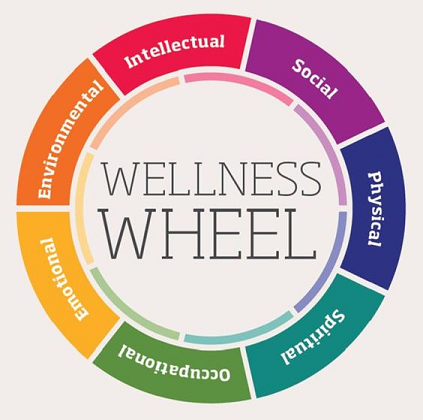College is a unique phase in life. It’s a time of newfound freedom, self-discovery, and personal growth. However, it’s also a time when students often face a range of physical, mental, and emotional challenges. Balancing academic demands, social life, and self-care can be tricky, but it’s essential for maintaining overall well-being. In this comprehensive guide, we’ll delve into various aspects of college student health and wellness to help you navigate this critical period successfully.
Physical Health
- Balanced Diet
One of the most significant aspects of physical health is maintaining a balanced diet. College campuses are often teeming with fast-food restaurants and late-night pizza delivery options. While indulging occasionally is fine, making healthier food choices is crucial for your overall well-being. Stock up on fruits, vegetables, whole grains, and lean proteins to fuel your body and brain. - Regular Exercise
College students often lead a sedentary lifestyle, spending long hours studying or attending classes. Incorporating regular exercise into your routine is vital for maintaining physical health. Whether it’s hitting the gym, joining a sports club, or simply going for a brisk walk, find an activity you enjoy to keep your body in shape. - Sufficient Sleep
With late-night study sessions and an active social life, college students can sometimes neglect the importance of sleep. However, sleep is crucial for physical and mental well-being. Aim for 7-9 hours of quality sleep each night to stay alert, focused, and energetic.
Mental Health
- Manage Stress
College can be stressful, with exams, assignments, and social pressures. Learning to manage stress is essential. Find healthy coping mechanisms like deep breathing, meditation, or talking to a counselor. Don’t hesitate to seek help if you’re struggling – many colleges offer counseling services to support students’ mental health. - Build a Support System
Surround yourself with a strong support system of friends, family, and mentors. Having a network of people who care about your well-being can make a significant difference in managing the challenges of college life. Don’t be afraid to lean on them for support when you need it.
Emotional Well-Being
- Embrace Self-Care
Self-care is a fundamental component of emotional well-being. It includes activities that make you feel happy, relaxed, and fulfilled. Whether it’s reading a book, taking a hot bath, or pursuing a hobby, allocate time for self-care in your busy schedule. - Mindfulness and Meditation
Practicing mindfulness and meditation can help you stay grounded and emotionally balanced. These techniques can reduce anxiety, improve focus, and enhance your overall emotional well-being. Consider taking a mindfulness class or using mindfulness apps to incorporate these practices into your daily routine.
Social Health
- Healthy Relationships
Building and maintaining healthy relationships is vital for social health. Surround yourself with friends who support your well-being and encourage personal growth. Be open to meeting new people and forming meaningful connections that contribute positively to your college experience. - Peer Pressure
College can sometimes involve peer pressure, leading students to engage in risky behaviors. It’s crucial to make independent choices that align with your values and well-being. Don’t succumb to negative influences, and always prioritize your health and safety.
Practical Tips
- Time Management
Effective time management is essential for college student health and wellness. Create a study schedule, set priorities, and avoid procrastination to reduce stress and ensure you have time for self-care and relaxation. - Stay Informed
Be aware of the resources available on your college campus. Whether it’s healthcare services, counseling centers, or wellness programs, understanding what’s at your disposal can be incredibly helpful when you need support. - Seek Balance
College life is about finding a balance between academics and personal well-being. While it’s essential to excel in your studies, don’t forget to enjoy the journey. Make memories, try new things, and savor this unique time in your life.
In conclusion, college student health and wellness should be a top priority during your academic journey. By taking care of your physical, mental, emotional, and social well-being, you can thrive in college and build a solid foundation for a successful and fulfilling future. Remember that achieving a balance between academic and personal life is key, and seeking help and support when needed is a sign of strength, not weakness. Make the most of your college years by prioritizing your health and well-being.





